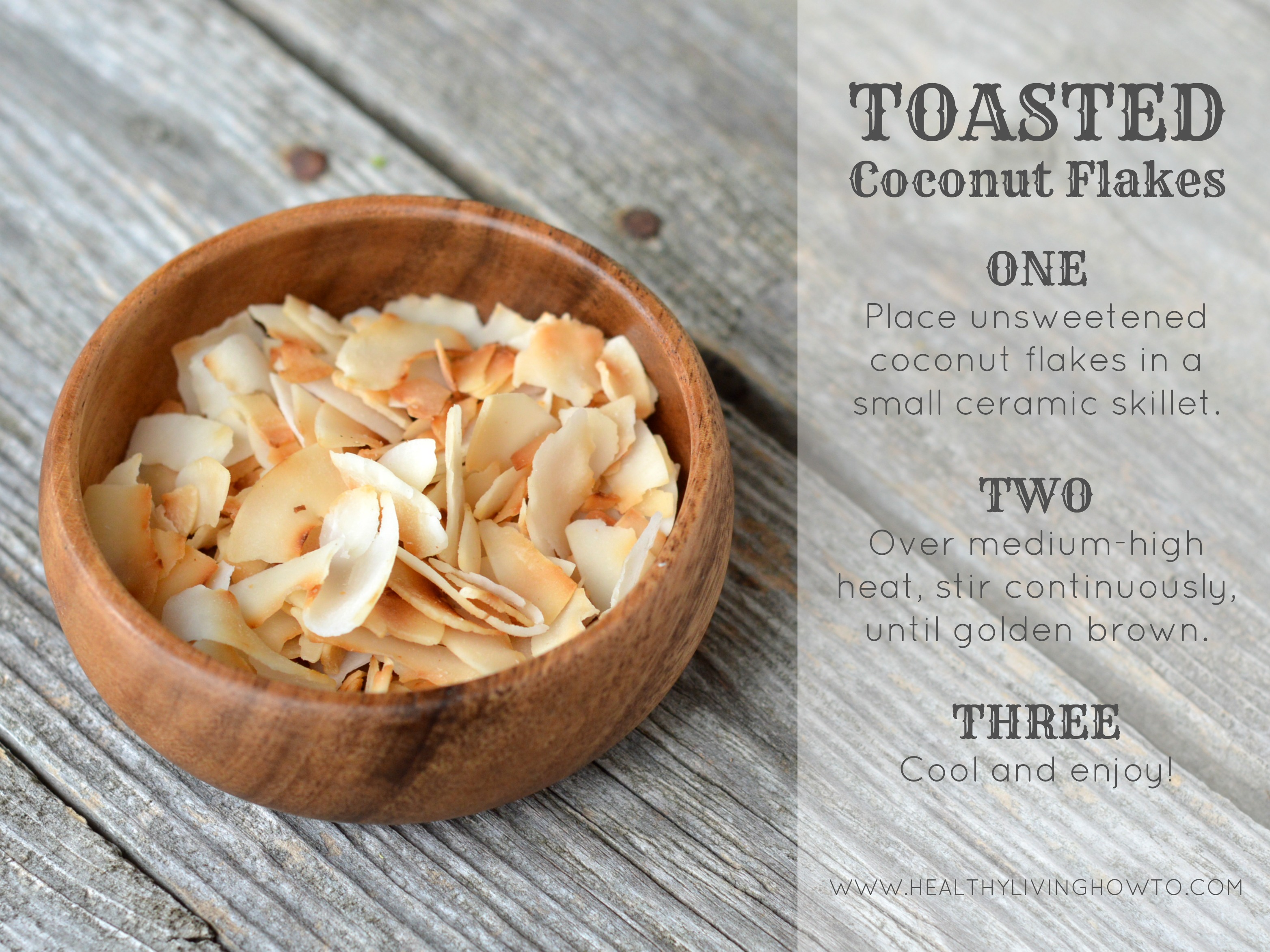Truth be told, I'm not a big snacker. I like to eat bigger meals that keep me satisfied longer. No one likes being hungry, right?! But, every once in a while, I get the munchies for something crunchy and toasted coconut flakes hit the spot.
Toasted coconut flakes are super easy to make, but be warned, once they start to brown, they brown quickly. Burnt coconut flakes are no bueno.
As the pretty graphic explains, start with unsweetened coconut flakes. I like this one and this one. Toss them in a ceramic pan and turn the burner on medium-high heat. Then just stir the coconut flakes continuously until they start to brown. Takes a couple of minutes. That's it!
They cool to the perfect crunch. Enjoy.
What's So Great About Coconut?
Recently, I had a conversation with a friend I got hooked on bulletproof coffee (BPC). She has been spreading the BPC love and was telling her mother-in-law how to make it. Her mother-in-law, a conventionally trained Registered Dietitian, nearly blew a gasket (my friend's words, not mine) when she learned the coffee is made with butter and coconut oil. She was taught and still believes saturated fat is bad. Good thing science has set the record straight, but if you are still confused, read my article titled: Saturated Fat, Carbs & Cardiovascular Disease.
Coconut oil has a long and highly respected reputation in many cultures throughout the world, not only as a valuable food but also as an effective medicine.
Bruce Fife, ND, is one of the world's foremost authorities on coconut. In his book, The Coconut Oil Miracle, he discusses at length how coconut is not only food but also medicine.
Coconut is rich in medium-chain fatty acids (MCFAs) which cannot be stored in the body. Instead they get broken down and are used for energy production. The MCFAs found in coconut oil are lauric acid, caprylic acid and capric acid.
- Lauric acid (LA) has the greatest antiviral activity. Nearly 50% of the fat found in coconut is composed of LA.
- Caprylic acid is a potent yeast fighting substance. It is very effective in eradicating candida and other fungi.
- Capric acid has strong antimicrobial properties which can only be obtained by ingesting.
According to Dr. Fife,
laboratory tests have shown that the MCFAs found in coconut oil are effective in destroying viruses that cause influenza, measles, herpes, mononucleosis, hepatitis C, and AIDS; bacteria that can cause stomach ulcers, throat infections, pneumonia, sinusitis, earache, rheumatic fever, dental cavities, food poisoning, urinary tract infections, meningitis, gonorrhea, and toxic shock syndrome; fungi and yeast that lead to ringworm, candida, and thrush; and parasites that can cause intestinal infections such as giardiasis.”
Coconut flakes, coconut oil and coconut milk all contain healthy MCFAs. All three of these have a variety of uses in a healthy kitchen.
To learn more about the coconut, be sure to check out The Coconut Oil Miracle.
